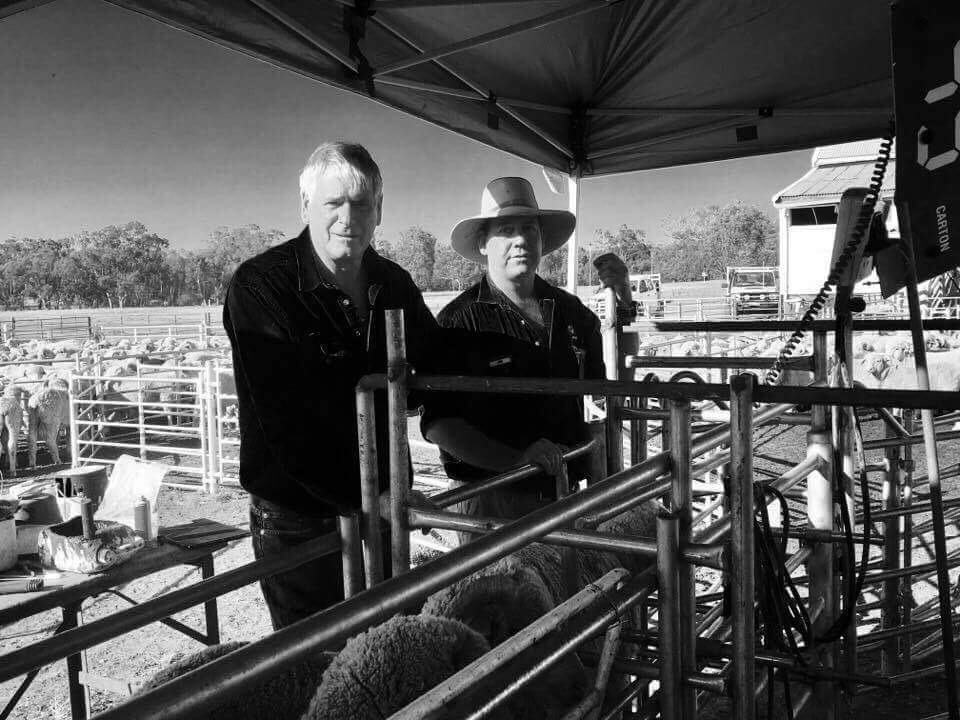History of Haddon Rig
OVER 100 YEARS IN THE MERINO INDUSTRY

In 1873, James Richmond bought Haddon Rig, 271,000 acres (109,671 ha) on the Macquarie River near Warren devoid of improvements. Between visits to England in 1875, 1877 and 1878 he built a 66-stand woolshed, fenced the property and put in many tanks and dams before he stocked it with sheep. In 1876 he began to convert it to freehold. In 1882, planning to breed his own rams, he founded a stud with 30 Peppin Rambouillet merino rams (originally from France) and 1900 aged ewes bought from Austin and Millear at Wanganella, a Falkiner property.
He later paid high prices for another 8 rams and 2500 stud ewes from the same stud and in 1884 paid 410 guineas for the champion Wool King. James Richmond opposed the 1890 shearing strike and refused to shear on union terms. Despite a guard of 30 policemen at the homestead the Haddon Rig woolshed was burnt with some 2000 ewes. Richmond brought shearers from New Zealand to complete shearing. In 1910 Richmond was deeply satisfied when Sir Samuel McCaughey bought all the sheep Haddon Rig could sell him. In September 1916 he sold Haddon Rig to F. S. Falkiner‘s son, Franc Falkiner.
When Franc Falkiner purchased Haddon Rig in 1916, the genetic beginnings of a Merino stud had already been established by James Richmond. Falkiner sold the outside block, improved the homestead’s water-supply and consolidated an 80,000-acre (32,375 ha) property. His concentration on burly, robust, plain-bodied merinos was rewarded with successes at the Sydney Sheep Show (1922, 1923) and the Sydney ram sales in 1924. At Foxlow, Bungendore, bought as drought relief pasture in 1920, and at Haddon Rig, he also bred Red Poll Hereford cattle and Percheron horses.
It is from Richmond’s original flock that the Haddon Rig stud evolved – managed and classed selectively and carefully – so that “like begets like”, and the distinctive consistency and quality of the genetics have carried on right through to the present day. The stud breeds 1200 large-framed, heavy cutting, soft bright woolled rams with hardy constitutions each year – ideal for wool and meat production and the differing demands of sheep grazing operations throughout Australia. Body size, frame and hardiness are vital to the sheep breeder. This is not only to ensure that the Merino ewe will produce maximum wool cut and lambs but also that the crossbred sheep will mature early and yield well, and will survive in very hostile environments. In 2000, the emphasis changed again to meet the demands of the meat market. Size, fertility and early maturing sheep carcasses became a priority, so the breeding programme followed suit.
Present Day Haddon Rig –
When George Falkiner junior took over Haddon Rig in 1981, he soon developed irrigation and dryland farming to enhance the business’s resilience against drought and eventually, to offset some of the economic challenges of the wool crash in 1992. These developments were the first in the Macquarie Valley and marked another example of how adoption of technology and innovation at Haddon Rig has influenced the agriculture industry.
Haddon Rig is now run by George’s daughter Olivia and her husband Will, with a diversified portfolio that includes dryland farming, irrigated cotton, trade cattle and commercial / stud merinos. Our focus is on sustainable production, adoption of innovation and technology to improve efficiency, integrity in all dealings and ensuring a safe, happy place to work for all our employees.
We are passionate about taking the merino stud forward into the future and continuing to provide a reliable, trustworthy source of genetics to our clients who are seeking meat, wool, growth and easy-care characteristics to build into their flocks.
Some stud achievements of note
- Highest price aggregate at Sydney Ram Sales (pre 1960)
- World Record Peppin Price $180,000.00 (1988)
- First cloned sheep in the world
- First privately owned artificial breeding centre on property
- First video sheep sale in Australia
- First bloodline marketing association (in co-operation with HR client base).
